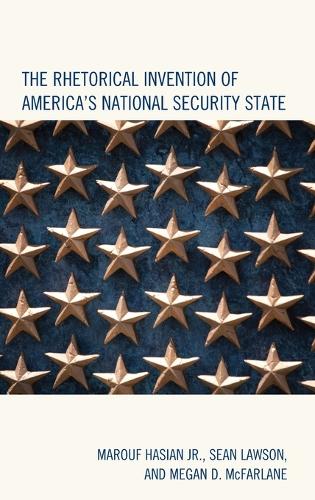
The Rhetorical Invention of America's National Security State
(Hardback)
Publishing Details
The Rhetorical Invention of America's National Security State
By (Author) Marouf Hasian
By (author) Sean Lawson
By (author) Megan D. McFarlane
Bloomsbury Publishing PLC
Lexington Books
29th July 2015
United States
Classifications
Professional and Scholarly
Non Fiction
Central / national / federal government policies
Military and defence strategy
327.1014
Physical Properties
Hardback
280
Width 162mm, Height 235mm, Spine 23mm
553g
Description
The Rhetorical Invention of Americas National Security State examines the rhetoric and discourse produced by and constitutive of Americas national security state. Hasian, Lawson, and McFarlane illustrate the importance of rhetoric to the expansion of the American national security state in the post-9/11 era through their examination of the global war on terrorism, enhanced interrogation techniques, drone crew stress, activities of Edward Snowden, rise of Special Forces, and popular representations of counterterrorism. The coauthors contend this expansion was not the result of lone, imperial executives or a nefarious state within a state, but was co-produced by elite and non-elite Americans alike who not only condoned, but also in many cases demanded, the expansion of the national security state. This work will be of interest to scholars in communication studies and political science.
Reviews
While a number of recent books have focused on the rhetorics and technologies of homeland security, few have so skillfully shown that the national security state is not just the work of politicians and intelligence agenciesit has also relied on the complicity of pundits, scientific experts, hackers, academics, military bureaucrats, and everyday citizens. This valuable book provides an insightful, blow-by-blow account of how the Global War on Terror has crept into the American homeland. -- Joshua Reeves, Oregon State University
We live in an era of perpetual war and our culture's dominant structures of feeling reflect it: anxiety, melancholy, and resentment have won out over reason, logic, and basic compassion. The Rhetorical Invention of America's National Security State asks how we got here and how we can move forward by examining the rhetorical features of Americas post 9-11 national security state. Hasian, Lawson, and McFarlane show us, convincingly, that the state that weve created can be challenged, modified, and recreated. -- Paul Achter, University of Richmond
Author Bio
Marouf Hasian Jr. is professor in the Department of Communication, University of Utah. Sean Lawson is associate professor in the Department of Communication, University of Utah. Megan D. McFarlane earned her doctorate from the Department of Communication, University of Utah.
